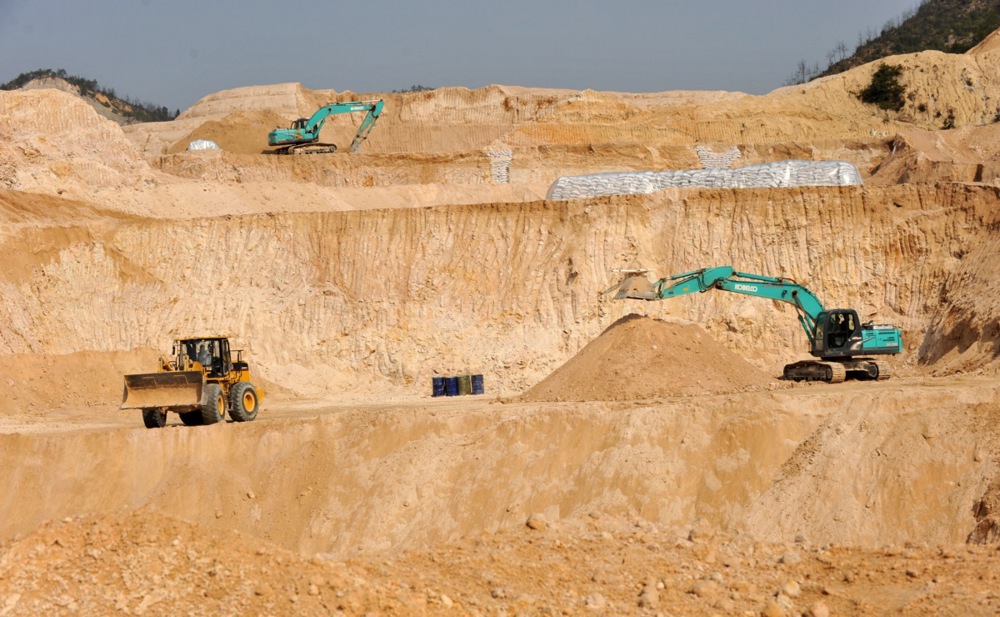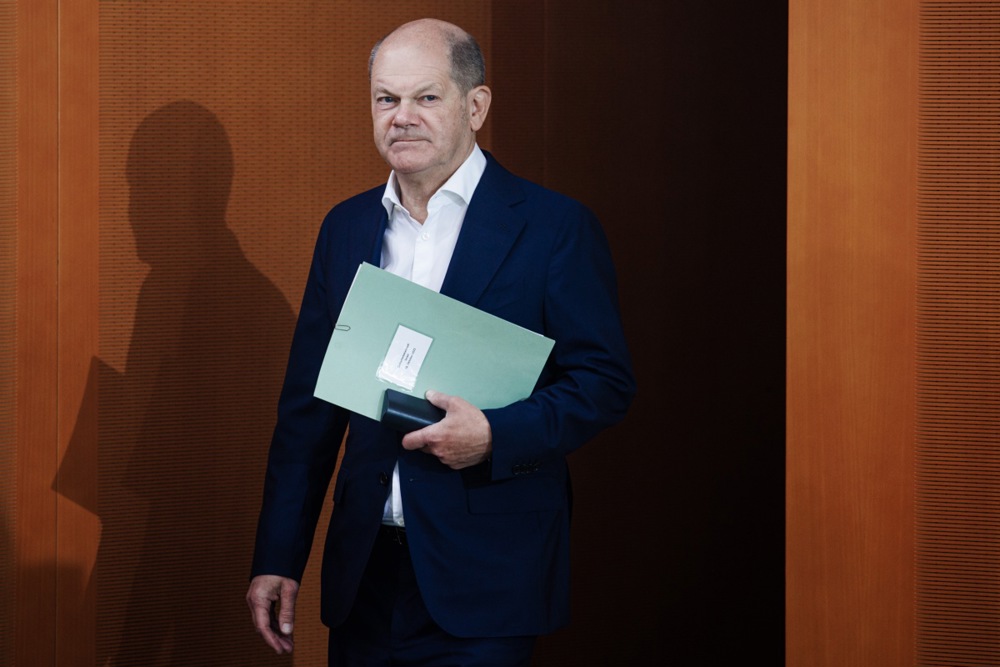Germany has banned car manufacturer Volkswagen from selling a firm possessing “sensitive technology” to China over security fears.
The German Government cited national security concerns when announcing its ban on MAN Energy Solutions, a subsidiary of the Volkswagen Group, from selling a gas turbine business to a state-owned Chinese shipbuilding company.
Robert Habeck, German Vice-Chancellor and economy minister, justified the move by citing strained relations between China and the West in recent years.
“The restriction that we have to put in place by law is that we protect technologies that can be a danger to public security and order from information leaks or from the influence of countries that are not always on friendly terms with us.”
The technology used in the turbines could have enabled Beijing to beef up its arms industry and improve fighter jet and drone performance, authorities added.
CSIC Longjiang is a subsidiary of China State Shipbuilding Corporation (CSSC) and specialises in developing small and medium-sized turbines. It also manufactures propulsion systems for Chinese naval destroyers.
It wanted to take over MAN operations in Oberhausen and Zurich and obtain access to new gas-turbine product lines.
The Australian Strategic Policy Institute has said the CSSC served as the cornerstone of the Chinese navy, producing a range of warships and support vessels, according to Australian news outlet Apollo Communications.
Additionally, CSSC holds approximately 40 per cent ownership in Research Institute No. 703, a China-based entity blacklisted by the US over its involvement in China’s defence industry.
COMMENT: China’s secret billions are buying the soul of Western universities and it's becoming a national security issue, writes @Raphfel. https://t.co/E423d8eLke
— Brussels Signal (@brusselssignal) June 3, 2024
Despite China’s being Germany’s largest trading partner and amid Berlin’s economic challenges, it deemed the acquisition a significant threat.
Due to concerns over public order and security, the Ministries of Foreign Affairs and Defence had previously expressed opposition to the sale in the days before the ban.
“We confirm that the federal government has decided not to approve the sale of our gas turbine business to CSIC Longjiang GH Gas Turbine Co,” a spokesperson for Augsburg-based MAN told the Financial Times on July 3.
“We respect the government’s decision,” it added.
Despite the ban, sources close to MAN told Handelsblatt newspaper that, according to experts, the “use of MAN turbines on military ships or in fighter jets and drones does not make technological sense”.
Germany’s VDA auto association has urged the European Commission to drop its planned tariffs on China-made electric vehicles in a last-ditch effort to influence negotiations ahead of the tariffs kicking in on Thursday. https://t.co/H8ySns6UNb
— Brussels Signal (@brusselssignal) July 3, 2024
The German Government can prohibit acquisitions of stakes of 10 per cent or greater in its companies associated with critical technology and infrastructure.
In late June, Habeck visited China to discuss a trade dispute between the EU and Beijing amid rising geopolitical tensions.
Germany and the EU are increasingly sceptical about China’s intentions, especially while it seems to support the Russian war efforts in Ukraine.
In 2022, German Chancellor Olaf Scholz allowed the sale of up to 25 per cent of the Tollerort container facility in Hamburg Harbour, Germany’s biggest seaport. That was despite opposition from many of his ministers, lawmakers and Brussels.
The Greens in Germany are much more hawkish toward China and want tighter regulation to prevent it from entering critical industrial sectors.
In the China strategy published in 2023, Germany had described Beijing as a “partner, competitor and systemic rival” and wanted to de-risk the economic relationship.
Last month, on June 21, Habeck pleaded for an updated strategy on China, with a longer-term vision and a wider European dimension.
COMMENT: Is Germany becoming a dependency of China? Europe’s most powerful nation is ever more reliant on Beijing, writes @ghlionn. https://t.co/LonBPMbRGV
— Brussels Signal (@brusselssignal) April 15, 2024





